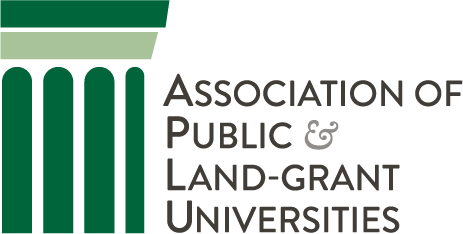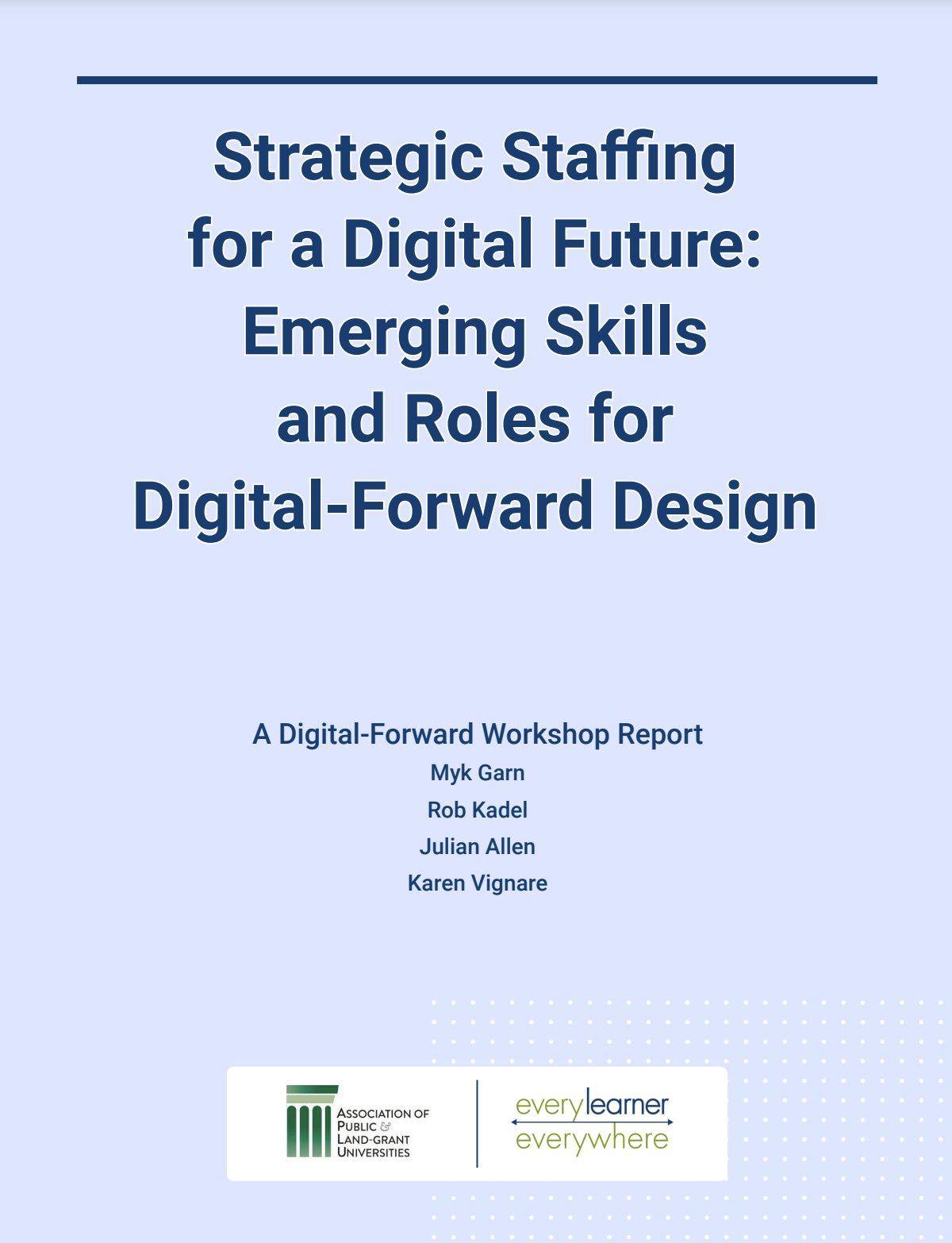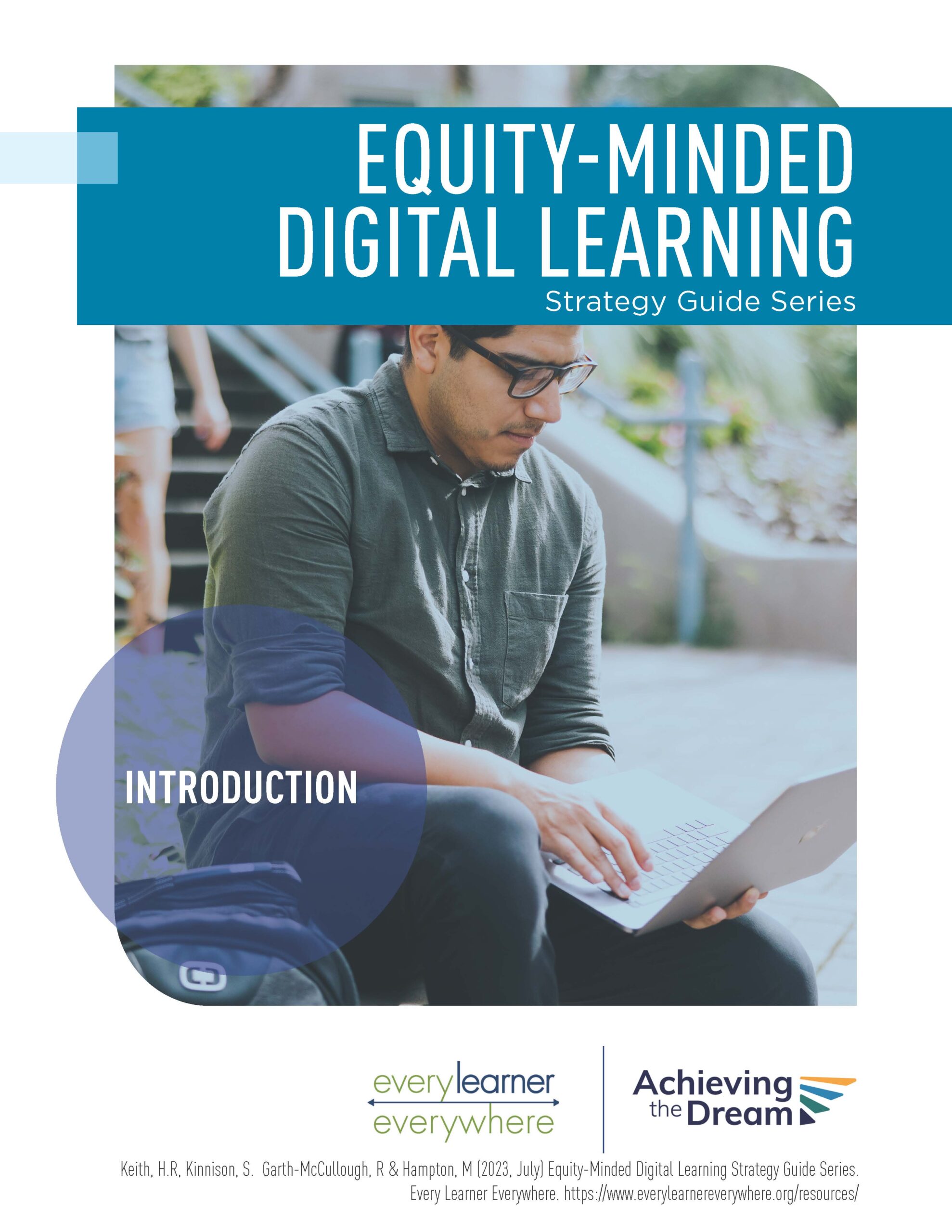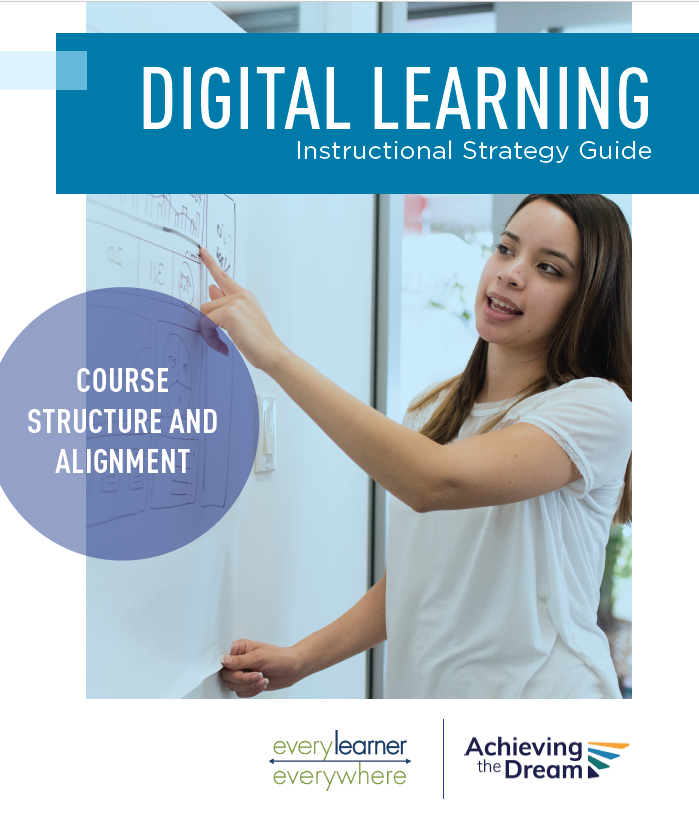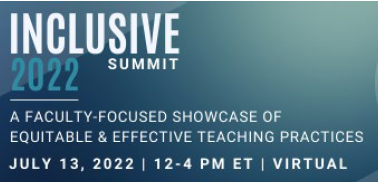Emerging Skills and Roles for Digital-Forward Design: Facing the Digital Tsunami
The digital transformation of postsecondary education is well underway and moving more rapidly every day. Digitizing the way our institutions operate, our faculty teach, and our students learn changes much—and requires much to change for a digital future. This means not just doing things differently, but also acquiring new and different skill sets and roles as new tools for teaching and learning emerge and evolve. In our preceding workshop, we advanced the concept of ‘digital-forward’ design as a model for incorporating and leveraging the tools and benefits of educational technology into course design.
An important finding from that workshop was the need for upskilling of current roles to keep pace with changes, and the emergence of new skills sets and roles as necessary and integral parts of the instructional design ecosystem. Thus, in Winter 2021 we convened the Digital-Forward Skills and Roles Workshop to identify and describe emergent digital-forward skill sets and roles to guide faculty, chief academic and instructional innovation officers, instructional design faculty, managers and staff in the specification, recruiting, and development of highly effective digital-forward instructional design, development, and delivery teams.
This report presumes that digital-forward design is not only useful, but that it will increasingly be a de facto standard of practice in postsecondary education course design in the digital future. Using the Principles for Digital Forward Design as a guide, the workshop participants were asked to provide insight and guidance for institutions as they face the digital tsunami of change washing across the campus. Their goals were to:
- Identify current and emergent skill sets and roles that are essential to digital-forward instructional design and pedagogies
- Describe the impact of digital-forward skills and roles on the institution
- Identify strategies colleges can use to assess which digital-forward skill sets and roles they will need in the future and how to acquire them


